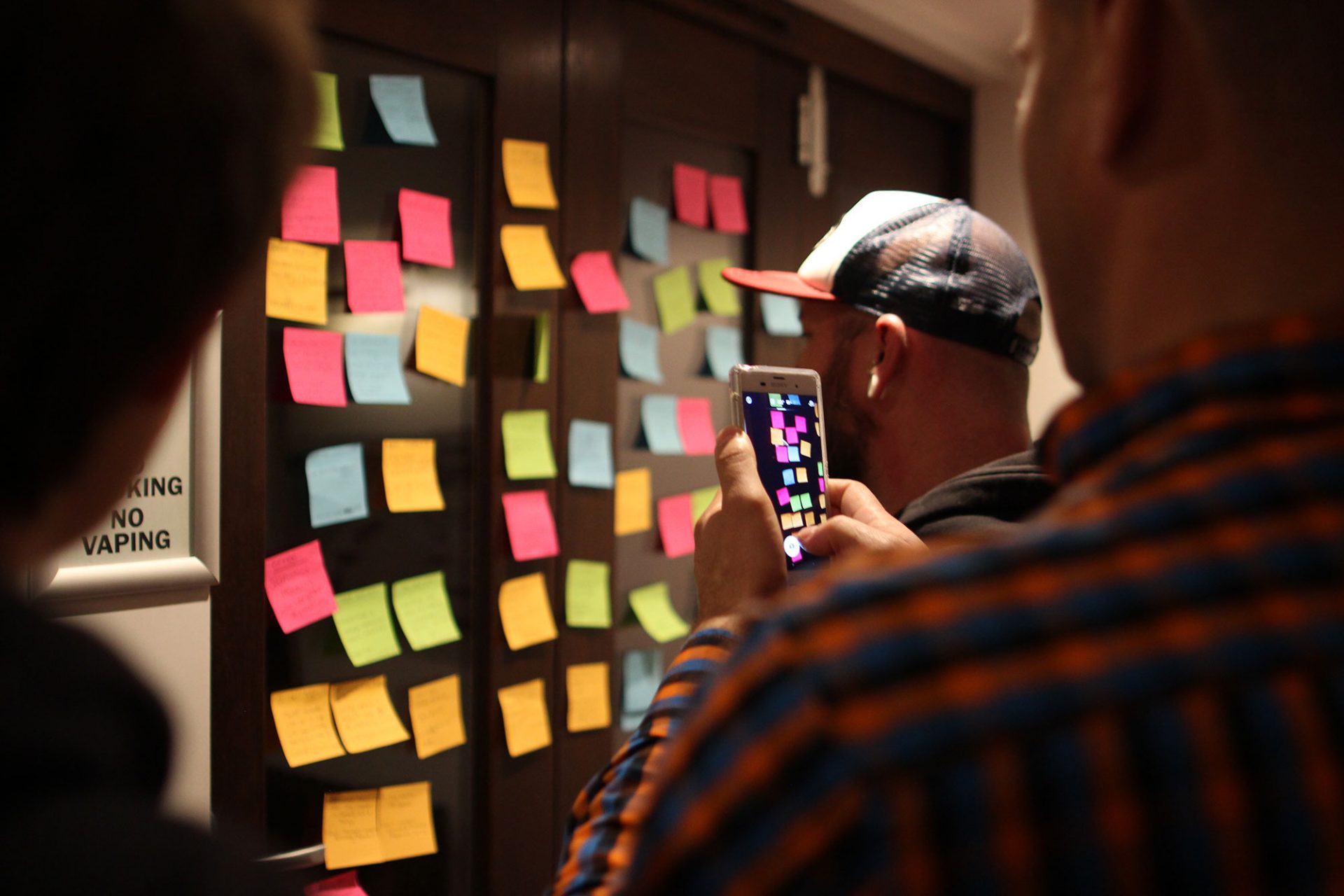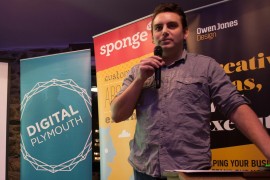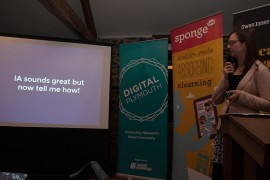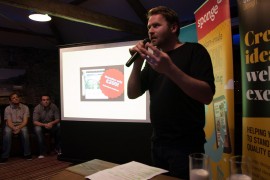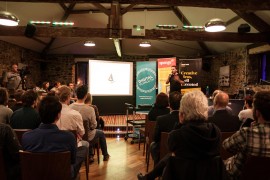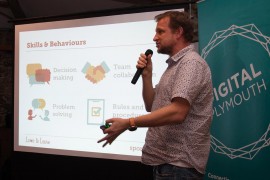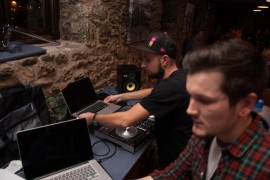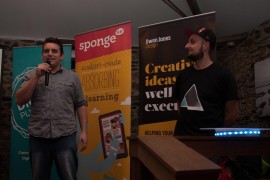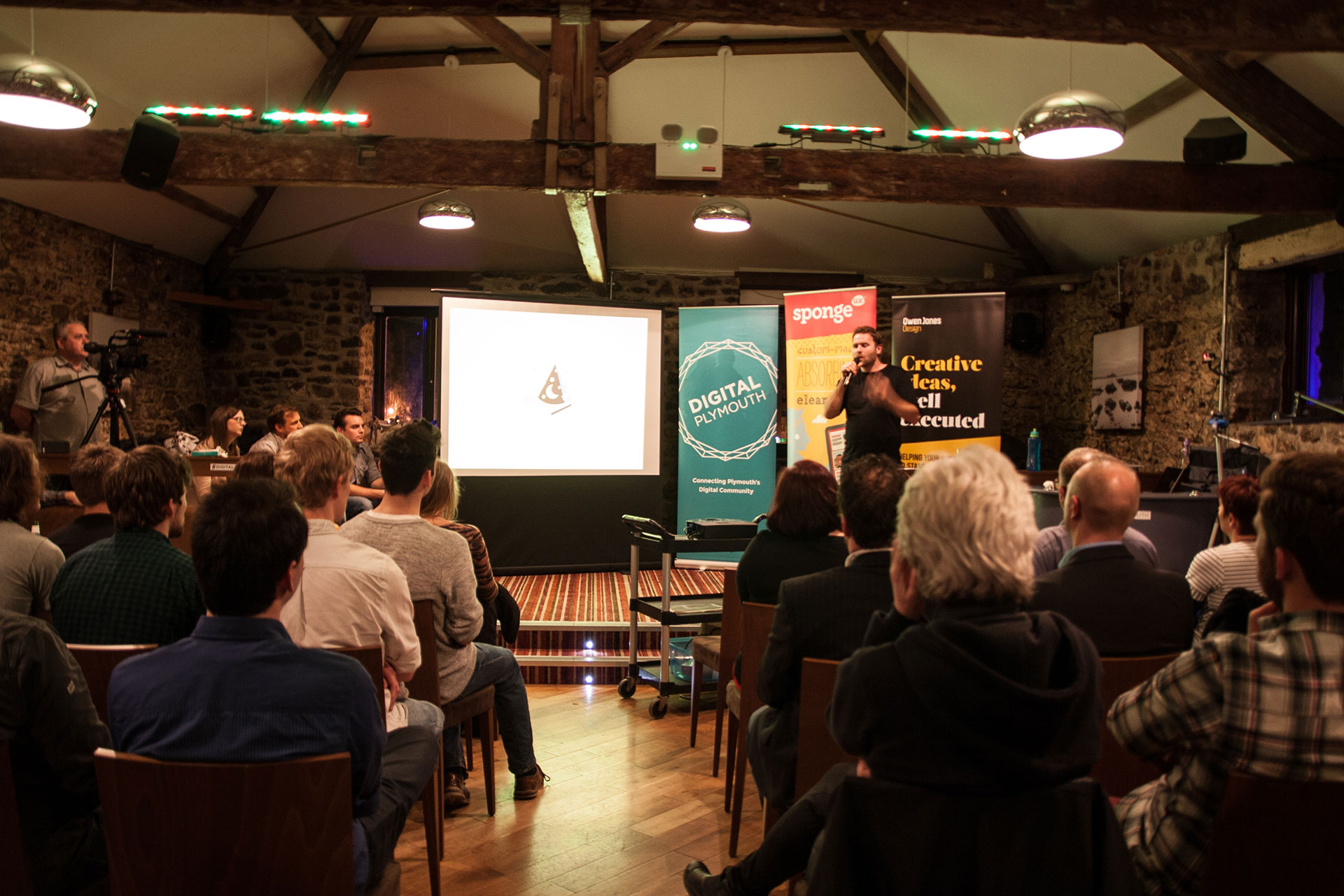
March meetup
03/03/16
The first Digital Plymouth meetup of 2016 was a roaring success. With a capacity smashing interest of over 200 people and a final turn out of 130 we were overwhelmed by the interest and support from the digital community. To top it all off we achieved a few more firsts included our first venue sponsor Sponge UK, our first live project demo, our first female speaker, and our first event live stream. It's fair to say a lot happened! Read on for more on the speakers presentations and get the 8th September in your diaries ready for the Digital Plymouth Conference!
From the ground up: an exploration into information architecture
IA is more than just structural, IA is about people. When it comes to information people matter. Digital information is embedded in our lives, it exists because of us and we rely on it so it is important that it is arranged in a way that makes sense.
Every time we start a new project we are throwing ourselves down the rabbit hole. There’s no map, loads of random stuff floating around and a surprise behind every door. We’ve all been in the types of project that run out of scope and over budget because the client thinks they know what they want, changes their mind halfway through and then expect you to just go along with it. Without an initial direction the project is likely to go round in circles with endless revisions and irrelevant changes that can result in a confused solution and a lot of stress.
IA is a bit like the white rabbit, guiding you on a path to completion. With a plan in place you can easily keep track of where you are going and know when you have reached your goal. As the Cheshire Cat once said ‘every adventure requires a first step’ and in my opinion IA is the first step to running a successful digital adventure.
Download presentationDecommoditising Design
Rice. Coal. Milk. These are typically recognised as commodities because, as Wikipedia puts it, the demand for them has “no qualitative differentiation across the market”. In other words, buy it from shop A or shop B, the chances are it’s essentially the same thing.
Design (as with other, similar services) is treated as a commodity by some customers, but why? Because the value they associate with design hasn’t been demonstrated to them properly – the ‘magic’ of what we do has been too well hidden. Many factors and variables affect the quality of design and generally if you want a particular level of quality you need to approach the right level of practictioner and pay the price that their service is worth.
As professionals we are responsible for understanding the value of our service and communicating that value to uphold our industries’ integrity and keep them from becoming commoditised.
Download presentationWhy so serious? Using games in elearning
Why should we encourage people to love their learning? The truth is there are real business benefits; happy employees are 12% more productive and companies with an engaged workforce have 25% lower staff turnover. If we can create fun and engaging e-learning content then we can convert the learner’s mindset from “have to do” to “want to do” – which is a win for both organisations and their employees. By creating engaging and enjoyable games to supplement traditional elearning we aim to achieve this goal. Professor Karl Kapp of Bloomsberg University has nailed the justification for games in e-learning:
“Games…are everything we say should be a part of great instructional design. They engage the learner, are interactive, and they enable the learner to get immediate feedback and to demonstrate mastery.”
Within 2 years over 90% of businesses aim to use games in their learning, proving there is a huge appetite for them. As we move towards a more integrated multi-device world we need to ensure any games solutions are built responsively and able to work cross platform to reach learners where they spend most of their online lives – on mobile devices. By using HTML5 technology (e.g. Phaser and Adapt) we can create powerful, fun and engaging games within an e-learning platform which run seamlessly across all devices and are tailored for the digitally savvy target audience.
Download presentationDJ Theremin Demo
To shake things up a bit at the end of the talks Marcin presented his DJ theremin, a mixer that can be controlled by a wave of your hand. Mixing music in thin air without touching anything is practically magic and just completely awesome! The tech also included a visualiser programmed to respond to the mixed audio in real time. The demo left the Digital Plymouth crowd stunned and amazed, many of whom got involved and had a go at mixing themselves during the rest of the evening. You can view a snippet of his demo on Instagram here:
https://www.instagram.com/p/BCgU0mhpBII/?taken-by=digitalplymouth
Event Sponsors
-

-
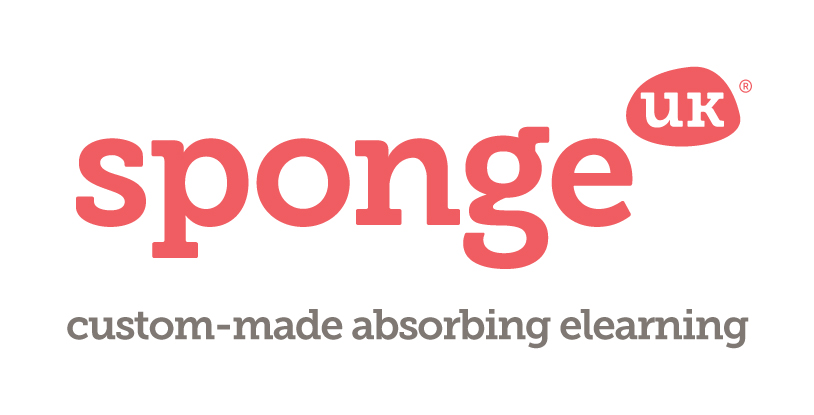
-

-
Want to join us?
Get Involved
